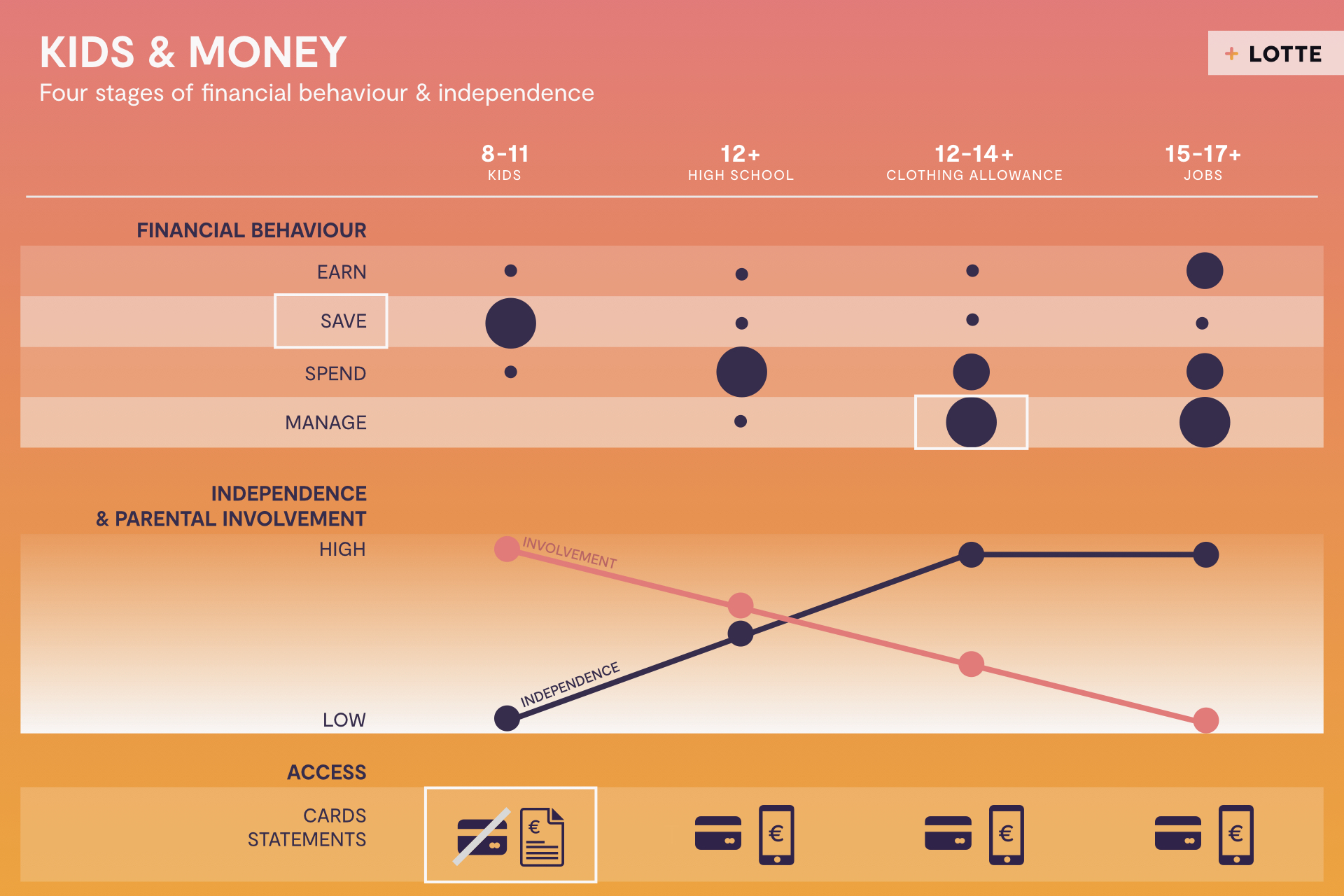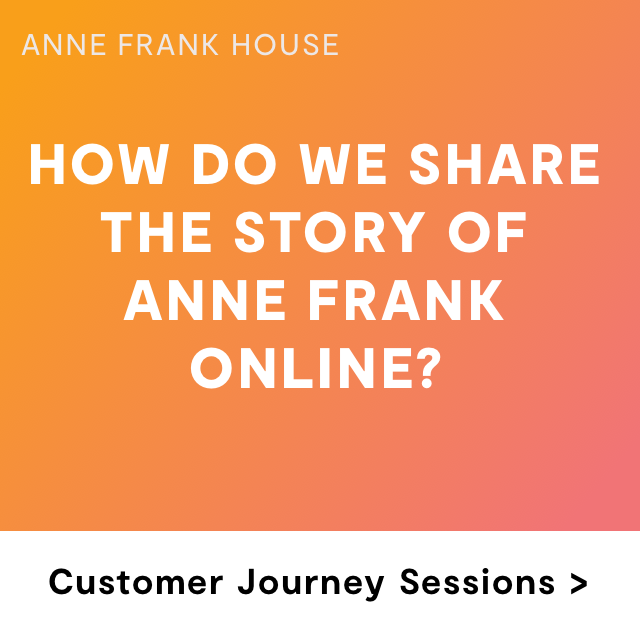THE FUTURE OF POCKET MONEY

• In-DEPTH Interviews
• competitor analysis
• strategy
• business modelling
• idea creation
• concept validation
how do kids learn financial skills in a world without cash?
I dove into this question for the DDBI executive education course at the Amsterdam Business School. Interviews with kids (8-18) and parents revealed four stages in which money play distinctly different roles in children’s lives.
This lead to three key innovation areas:
8-11 year-olds: Invisible pocket money
Because parents often don’t have cash anymore, kids increasingly receive pocket money into a bank account. - A bank account they can’t see, because banks don’t offer online or mobile banking for kids.
14+ year-olds: Looking back & Planning for the Future
When they start receiving clothing allowance, insight into spending, and future planning become much more important for teenagers. These are vital skills for the future, but they are rarely supported by existing online banking solutions.
8-17 year-olds: Parents want to promote saving
Parents indicate that teaching their kids to save is one of their prime goals. A way to promote saving, to save for bigger goals, and more insight into saving would all help them in this endeavour.
•
In a second phase, I researched the desirability, feasibility and viability of a pocket-money-app for parents and children with users of fintech startup Otly.




